In this time of contagious insults and flaming on social media, Buddha has good advice: “If I do not get insulted, then the anger falls back on you.”
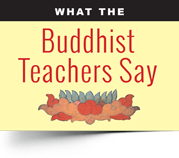 In today’s world of instant tweets and social media, insults propigate almost with a flaming will of their own. And those words find instant audiences on Twitter, spreading the anger, the fury, the insults, hurting, hurting and hurting. But, why do insults hurt us?
In today’s world of instant tweets and social media, insults propigate almost with a flaming will of their own. And those words find instant audiences on Twitter, spreading the anger, the fury, the insults, hurting, hurting and hurting. But, why do insults hurt us?
Modern psychology is only now telling us what Buddha taught us 2500 years ago. The best reaction to insults in a non-reaction. Buddha said if “I do not get insulted, then the anger falls back on you.”
Why insults hurt — and why they shouldn’t
Attachment to ego can lead to the need to defend against any perceived insult. In psychological terms, we react with anger to insults because we are “social animals driven by the desire to reach the top,” according to Professor William Irvine. He studied insults, and concluded in his book A Slap in the Face: Why Insults Hurt — and Why They Shouldn’t:
What I realized was that the pain caused by insults is really just a symptom of a far more serious ailment: our participation in the social hierarchy game. We are people who need to be among people. The problem is that once we are among them, we feel compelled to sort ourselves into social hierarchies. If we were wolves, we’d fight to establish the social order of the pack. But since we are humans with outsized brains and language, we use words instead. [2]
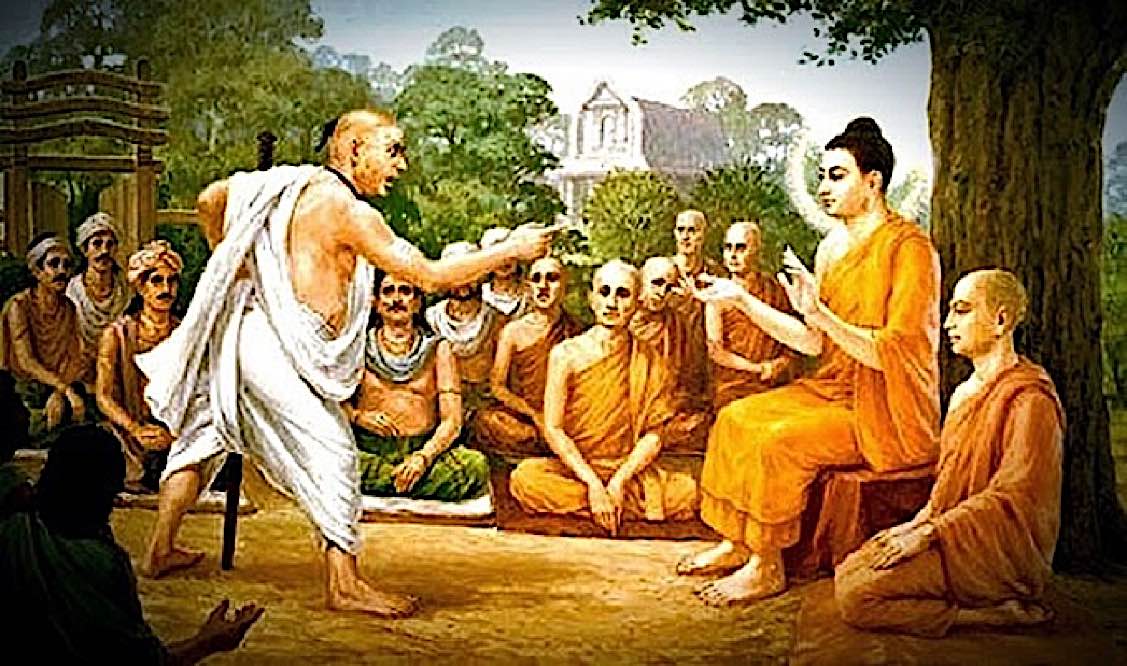
And those words, he explains hurt — they hurt, but they shouldn’t. The professor advises us to ignore the insult and carry on as if nothing happened — echoing advice from 2500 years ago from the Blessed One, Shakyamuni Buddha, notably in the Akkosa Sutta (full Sutta reproduced below.)
Buddha taught us to non-recieve insults
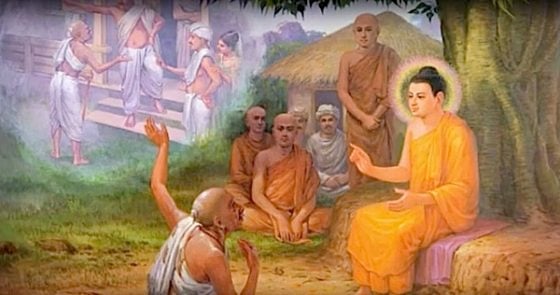
Buddha taught how to respond to people who insult us. Basically, his advice is to ignore the insult as meaningless — to not receive or acknowledge the insult. In the Akkosa Sutra, his only reply to being severely insulted by an influential Brahmin was:
“Whoever returns insult to one who is insulting, returns taunts to one who is taunting, returns a berating to one who is berating, is said to be eating together, sharing company, with that person. But I am neither eating together nor sharing your company, Brahmin. It’s all yours. It’s all yours.”
Ultimately, insults mean nothing at all, unless we react to them. The harm the giver of insults, not the receiver — or non-receiver, if we follow Buddha’s advice. As Buddha said:
“As a mirror reflects an object, as a still lake reflects the sky: take care that what you speak or act is for good. For goodness will always cast back goodness and harm will always cast back harm.”
Lama Tsongkhapa’s advice: “speak only of their good qualities”

The great founder of the Geluk Tibetan Buddhist school, Lama Je Tsong Khapa also wrote extensively on this important topic:
When I remember, see or hear living beings
speaking harshly or hitting me
may I meditate on patience,
and, avoiding anger, speak instead of their good qualities.By developing, in the stream of my being, the pure wish,
which is based on bodhicitta,
holding other beings dearer than myself,
may I quickly bestow supreme buddhahood on them.
Bearing disgrace is the most important virtue
Master Hsing Yun, in a teaching feature in Tricycle Magazine on Anger, explained it this way:
“To bear disgrace and insult” is the most important virtue a person can possibly cultivate, because the ability to forbear is enormously powerful, since a moment of anger can destroy an entire lifetime of merits.” [1]
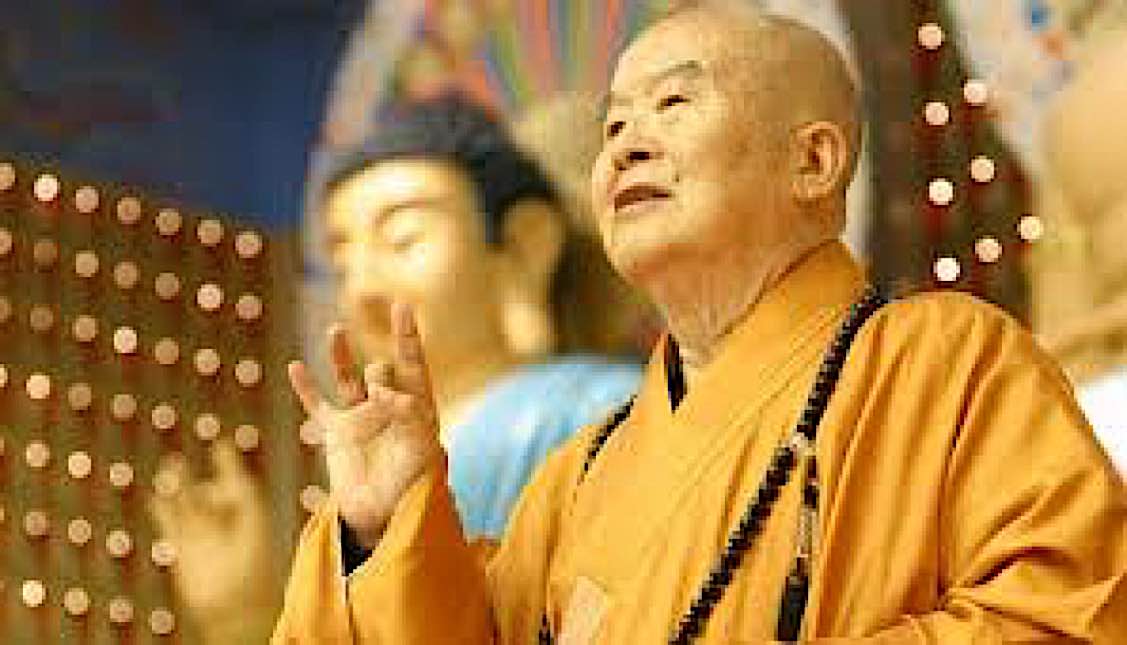
In another story, similar in theme to the Akkosa Sutra (read the full Akkosa below), Buddha gives similar advice to an angry young man:
One day Buddha was walking through a village teaching Dhamma. A very angry and rude young man belong to another group of believers came up and began insulting him. “You have no right teaching others,” he shouted. “You are as stupid as everyone else. You are nothing but a fake.”
Buddha was not upset by these insults. Instead, he asked the young man,
“Tell me, if you buy a gift for someone, and that person does not take it, to whom does the gift belong?”
The man was surprised to be asked such a strange question and answered,
“It would belong to me, because I bought the gift.”
The Buddha smiled and said,
“That is correct. And it is exactly the same with your anger. If you become angry with me and I do not get insulted, then the anger falls back on you. You are then the only one who becomes unhappy, not me. All you have done is hurt yourself.”
Buddha often bore insults from Brahmins, rival teachers, and — in one striking case — from a mother who’s son had left her to join the monastic followers of the Buddha:
A woman’s son left her to become one of the Buddha’s disciples. She confronted the Buddha and showered him with great anger because she was a widow, and her son had been her sole source of support. She poured out a great, virulent wrath in the Buddha’s face.
The monks watching were shocked that the Buddha said nothing to defend himself. After all, her son was taking active steps in the path towards the liberation – couldn’t she understand that?
When the woman left, they asked why he listened, did nothing, and, seemingly, took the abuse.
Buddha, of course, responded as he had before. That he didn’t have to “accept her gifts” — and, of course, that she was suffering and he must show compassion for her suffering.
Akkosa Sutra
Insult [3]
I have heard that on one occasion the Blessed One was staying near Rajagaha in the Bamboo Grove, the Squirrels’ Sanctuary. Then the Brahmin Akkosaka (“Insulter”) Bharadvaja heard that a Brahmin of the Bharadvaja clan had gone forth from the home life into homelessness in the presence of the Blessed One. Angered and displeased, he went to the Blessed One and, on arrival, insulted and cursed him with rude, harsh words.
When this was said, the Blessed One said to him: “What do you think, Brahmin: Do friends and colleagues, relatives and kinsmen come to you as guests?”
“Yes, Master Gautama, sometimes friends and colleagues, relatives and kinsmen come to me as guests.”
“And what do you think: Do you serve them with staple and non-staple foods and delicacies?”
“Yes, sometimes I serve them with staple and non-staple foods and delicacies.”
“And if they don’t accept them, to whom do those foods belong?”
“If they don’t accept them, Master Gautama, those foods are all mine.”
“In the same way, Brahmin, that with which you have insulted me, who is not insulting; that with which you have taunted me, who is not taunting; that with which you have berated me, who is not berating: that I don’t accept from you. It’s all yours, Brahmin. It’s all yours.
“Whoever returns insult to one who is insulting, returns taunts to one who is taunting, returns a berating to one who is berating, is said to be eating together, sharing company, with that person. But I am neither eating together nor sharing your company, Brahmin. It’s all yours. It’s all yours.”
“The king together with his court know this of Master Gautama — ‘Gautama the contemplative is an arhat’ — and yet still Master Gautama gets angry.” [1]
[The Buddha:]
Whence is there anger
for one free from anger,
tamed,
living in tune —
one released through right knowing,
calmed
and Such.You make things worse
when you flare up
at someone who’s angry.
Whoever doesn’t flare up
at someone who’s angry
wins a battle
hard to win.You live for the good of both
— your own, the other’s —
when, knowing the other’s provoked,
you mindfully grow calm.When you work the cure of both
— your own, the other’s —
those who think you a fool
know nothing of Dhamma.
When this was said, the Brahmin Akkosaka Bharadvaja said to the Blessed One, “Magnificent, Master Gautama! Magnificent! Just as if he were to place upright what had been overturned, were to reveal what was hidden, were to show the way to one who was lost, or were to hold up a lamp in the dark so that those with eyes could see forms, in the same way Master Gautama has — through many lines of reasoning — made the Dhamma clear. I go to the Blessed One for refuge, to the Dhamma, and to the community of monks. Let me obtain the going forth in Master Gautama’s presence, let me obtain admission.”
Then the Brahmin Akkosaka Bharadvaja received the going forth and the admission in the Blessed One’s presence. And not long after his admission — dwelling alone, secluded, heedful, ardent, and resolute — he in no long time reached and remained in the supreme goal of the holy life, for which clansmen rightly go forth from home into homelessness, knowing and realizing it for himself in the here and now. He knew: “Birth is ended, the holy life fulfilled, the task done. There is nothing further for the sake of this world.” And so Ven. Bharadvaja became another one of the Arhats.
Notes
[1] is the founder of the Fo Guang Shan Buddhist order and the Buddha’s Light International Association. Feature article “Don’t Get Mad, Don’t Get Even”
[2] A Slap in the Face: Why Insults Hurt — andc Why They Shouldn’t, William B. Irvine
[3] Citation for Sutta Translation: “Akkosa Sutta: Insult” (SN 7.2), translated from the Pali by Thanissaro Bhikkhu. Access to Insight (BCBS Edition), 30 November 2013, https://www.accesstoinsight.org/tipitaka/sn/sn07/sn07.002.than.html .
2 thoughts on “In this time of contagious insults and flaming on social media, Buddha has good advice: “If I do not get insulted, then the anger falls back on you.””
Leave a Comment
More articles by this author

Profound simplicity of “Amituofo”: why Nianfo or Nembutsu is a deep, complete practice with innumerable benefits and cannot be dismissed as faith-based: w. full Amitabha Sutra

“Torches That Help Light My Path”: Thich Nhat Hanh’s Translation of the Sutra on the Eight Realizations of the Great Beings

Maha Mangala Sutta, Life’s Highest Blessings, The Sutra on Happiness, the Tathagata’s Teaching to Gods and Men

Miracles of Buddha: With the approach of Buddha’s 15 Days of Miracles, we celebrate 15 separate miracles of Buddha, starting with Ratana Sutta: Buddha purifies pestilence.
Search
Latest Features
Please support the "Spread the Dharma" mission as one of our heroic Dharma Supporting Members, or with a one-time donation.
Please Help Support the “Spread the Dharma” Mission!

Be a part of the noble mission as a supporting member or a patron, or a volunteer contributor of content.
The power of Dharma to help sentient beings, in part, lies in ensuring access to Buddha’s precious Dharma — the mission of Buddha Weekly. We can’t do it without you!
A non-profit association since 2007, Buddha Weekly published many feature articles, videos, and, podcasts. Please consider supporting the mission to preserve and “Spread the Dharma." Your support as either a patron or a supporting member helps defray the high costs of producing quality Dharma content. Thank you! Learn more here, or become one of our super karma heroes on Patreon.
Josephine Nolan
Author | Buddha Weekly
Josephine Nolan is an editor and contributing feature writer for several online publications, including EDI Weekly and Buddha Weekly.




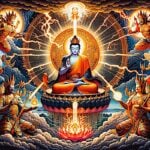

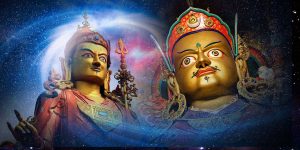



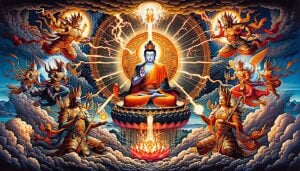



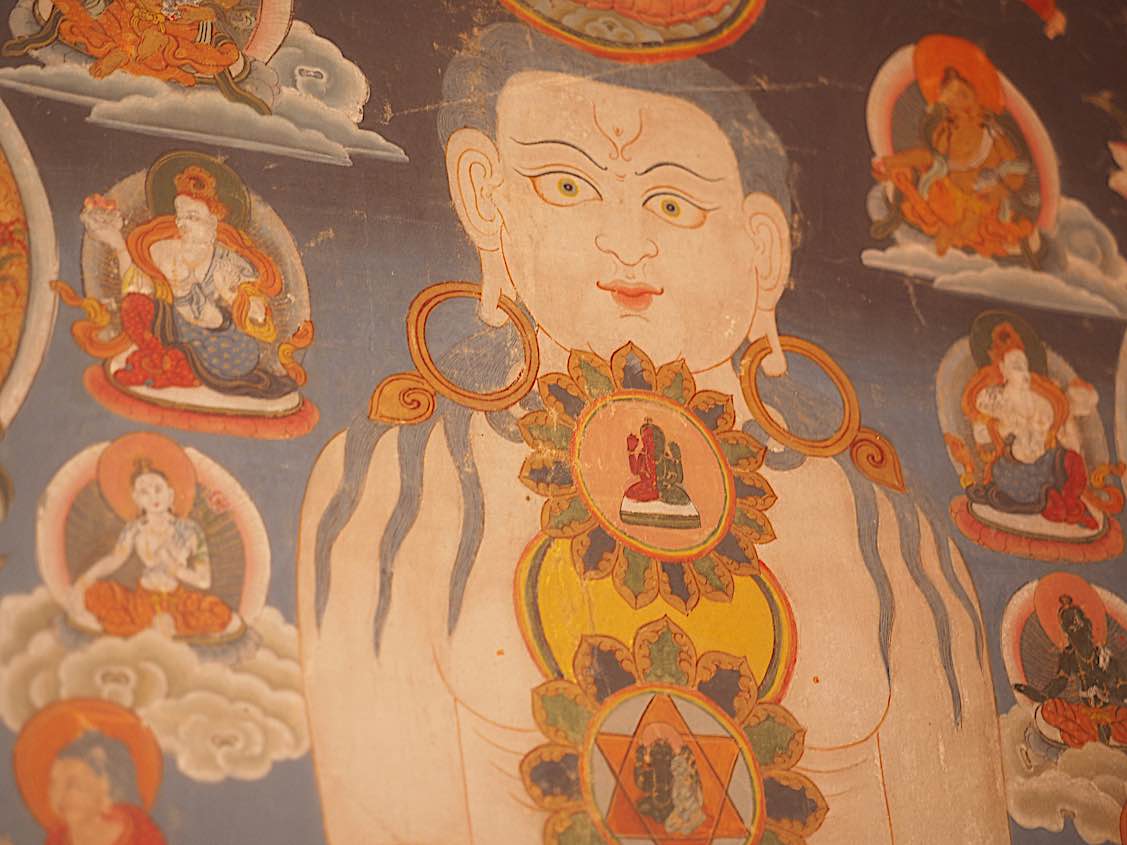
The life of Buddha is rich of episodes with deep spiritual meaning.
Today is so important to mirror in the social media compassion and tolerance, instead of rage and fear.
Gratitude.
In other words: Buddha’s advice is „Keep calm and don’t feed the troll“ 🙂